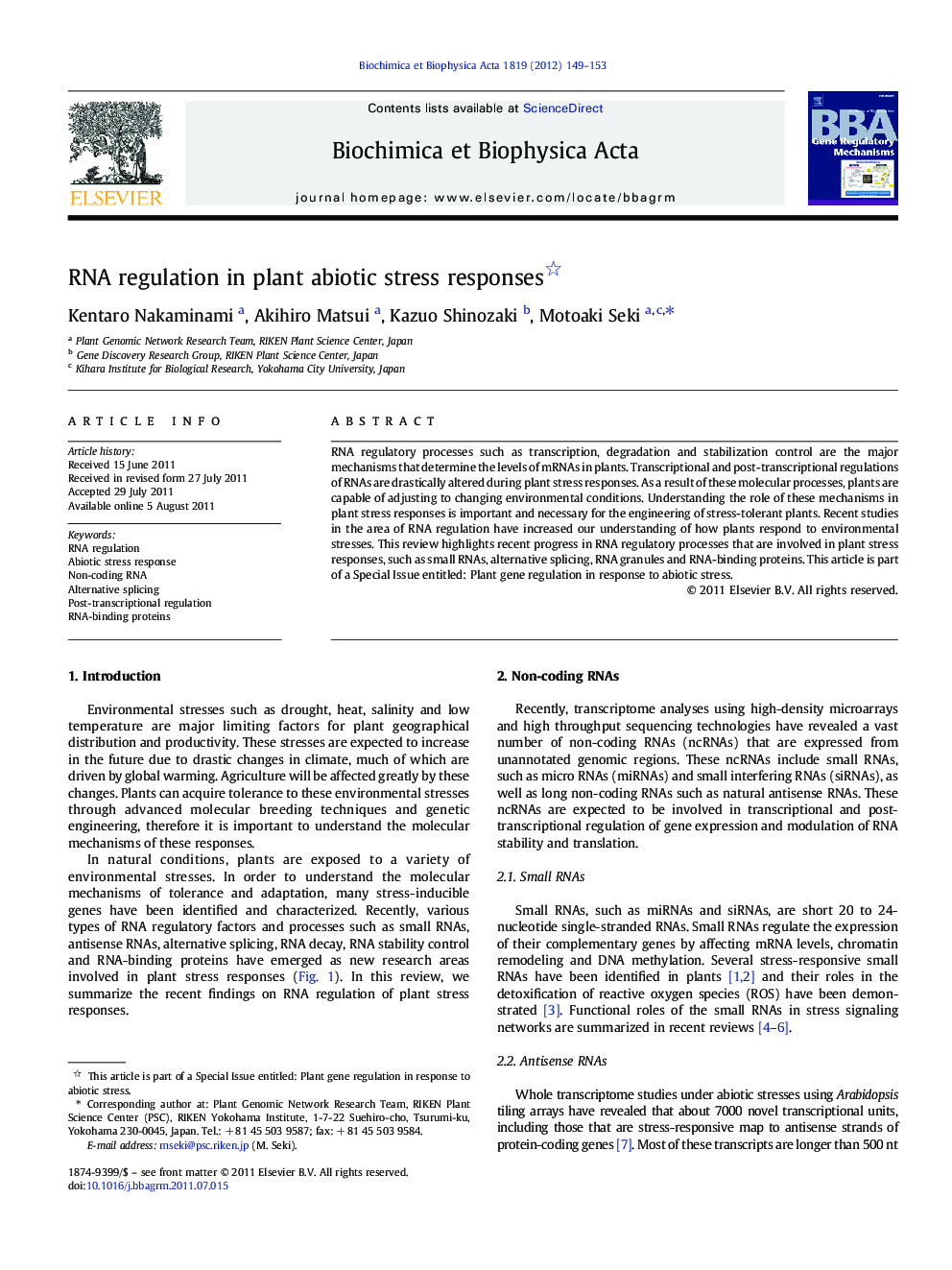| Article ID | Journal | Published Year | Pages | File Type |
|---|---|---|---|---|
| 1946629 | Biochimica et Biophysica Acta (BBA) - Gene Regulatory Mechanisms | 2012 | 5 Pages |
RNA regulatory processes such as transcription, degradation and stabilization control are the major mechanisms that determine the levels of mRNAs in plants. Transcriptional and post-transcriptional regulations of RNAs are drastically altered during plant stress responses. As a result of these molecular processes, plants are capable of adjusting to changing environmental conditions. Understanding the role of these mechanisms in plant stress responses is important and necessary for the engineering of stress-tolerant plants. Recent studies in the area of RNA regulation have increased our understanding of how plants respond to environmental stresses. This review highlights recent progress in RNA regulatory processes that are involved in plant stress responses, such as small RNAs, alternative splicing, RNA granules and RNA-binding proteins. This article is part of a Special Issue entitled: Plant gene regulation in response to abiotic stress.
► We summarized the recent studies on RNA regulation in plant stress responses. ► Non-coding RNAs regulate the mRNA levels and chromatin modification. ► Alterative splicing events occur in response to the environmental stresses. ► PB and SG play an important role in regulating RNA levels in plant stress responses. ► RNA-binding proteins are a key factor involved in plant stress responses.
